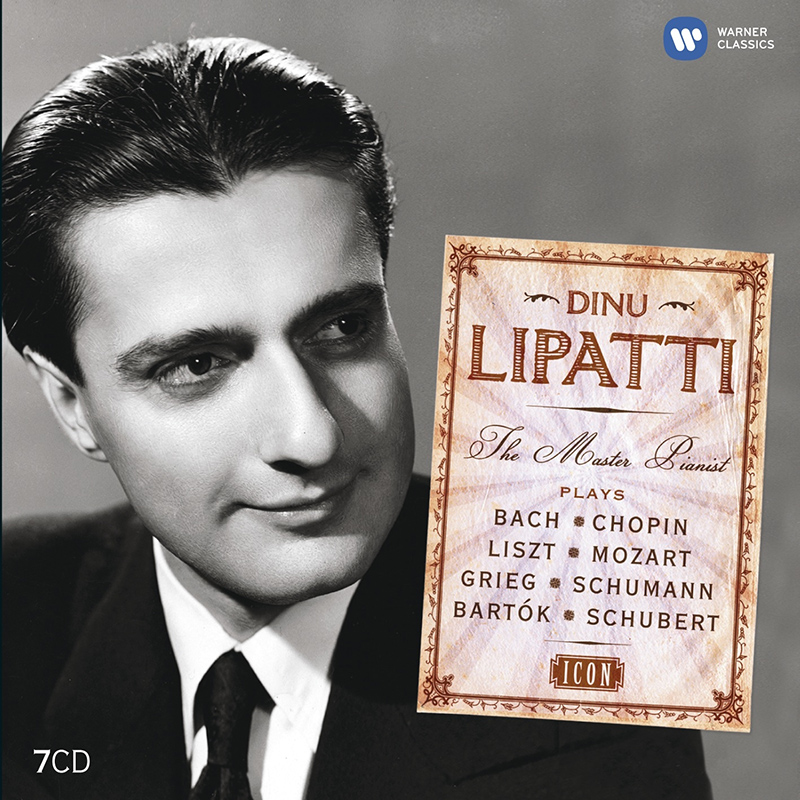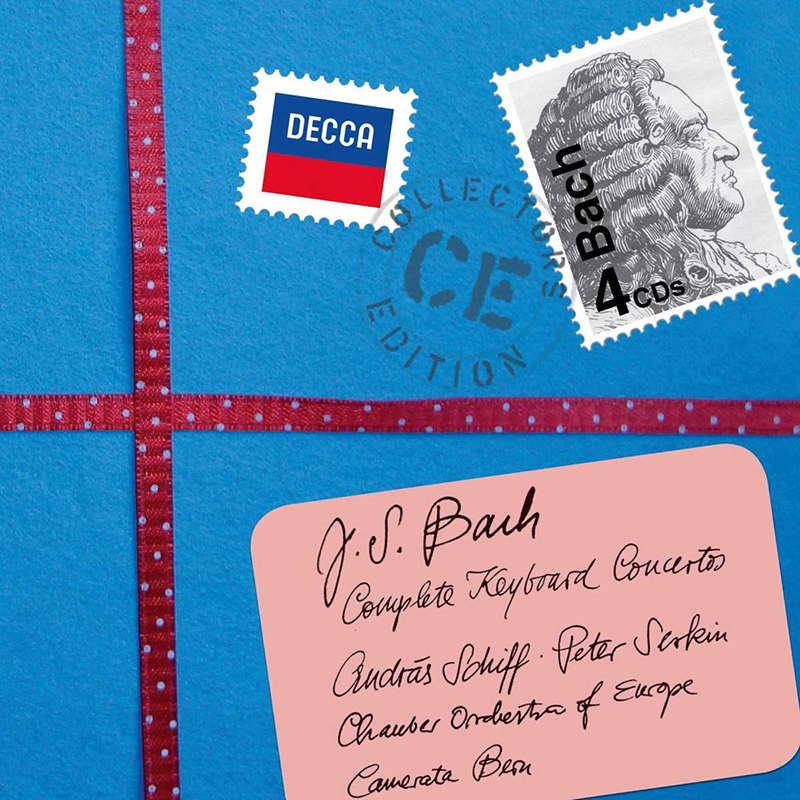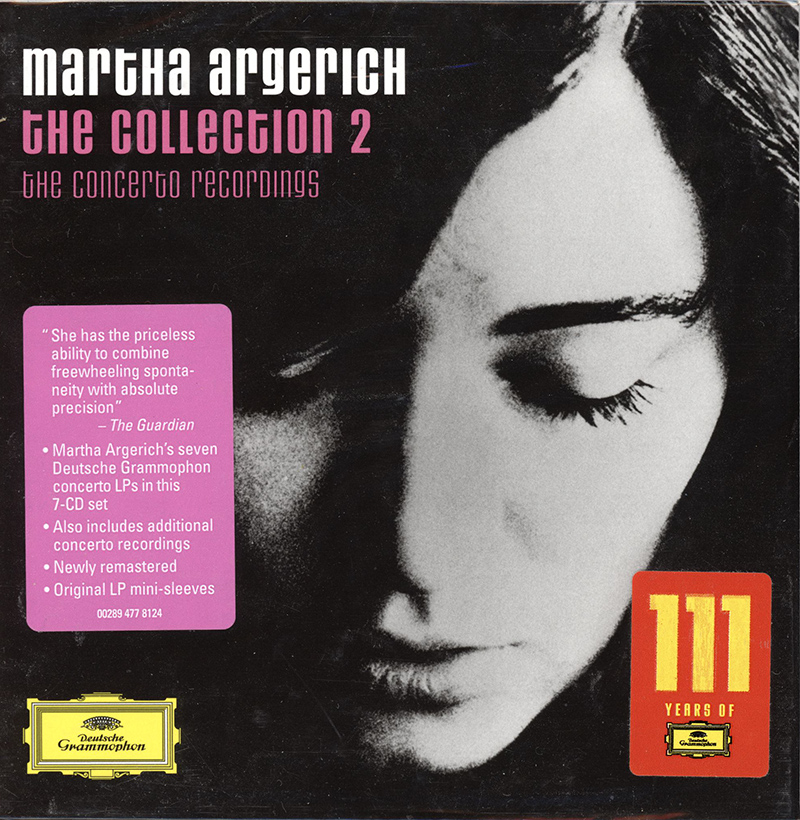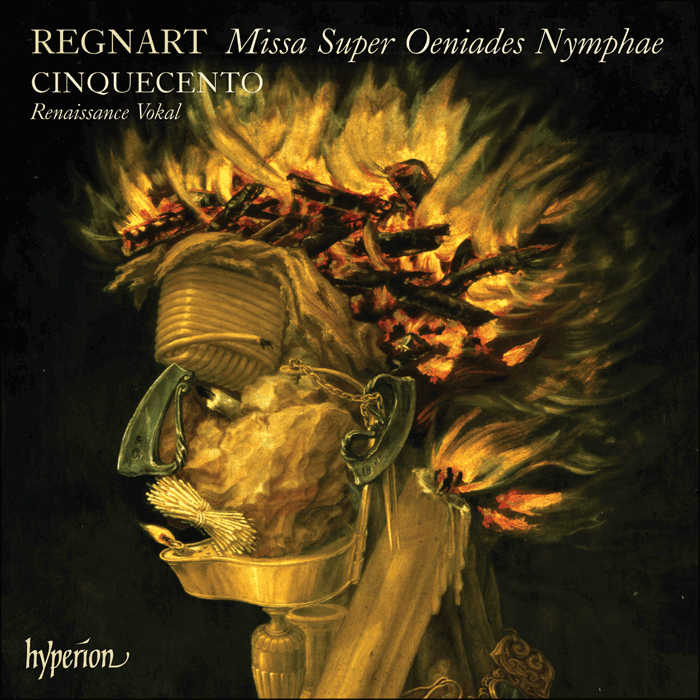Logowanie
KOLEKCJE!
BACH, CHOPIN, LISZT, MOZART, GRIEG, Dinu Lipatti, Otto Ackermann, Ernest Ansermet
The Master Pianist
PROKOFIEV, CHOPIN, TCHAIKOVSKY, SCHUMANN, BEETHOVEN, Martha Argerich, Claudio Abbado, Giuseppe Sinopoli
The Concerto Recordings
The Collection 2
Jakość LABORATORYJNA!
ORFF, Gundula Janowitz, Gerhard Stolze, Dietrich-Fischer Dieskau, Deutsche Oper Berlin, Eugen Jochum
Carmina Burana
ESOTERIC - NUMER JEDEN W ŚWIECIE AUDIOFILII I MELOMANÓW - SACD HYBR
Winylowy niezbędnik
ClearAudio
Essence MC
kumulacja zoptymalizowana: najlepsze z najważniejszych i najważniejsze z najlepszych cech przetworników Clearaudio
Direct-To-Disc
PIAZZOLLA, ChamberJam Europe
Tangos del Ángel y del Diablo
Direct-to-Disc ( D2D ) - Numbered Limited Edition
Vox Silentii
Cantus Sororum - Medieval Brigittine Songs from Naantali Convent
- Vox Silentii - Cantus Sororum
- 01. Ave Maria (1:37)
- 02. Rosa rorans bonitatem (4:19)
- 03. Benedicta sis tu Maria (4:19)
- 04. Sicut spinarum vicinitas (5:16)
- 05. Multe tribulaciones (4:06)
- 06. Benedicamus (4:28)
- 07. Maria summe trinitatis (6:39)
- 08. Magnificetur (7:23)
- 09. Stirps Iesse (5:10)
- 10. Errorum pleno tenebris (4:40)
- 11. Vidit virgo (2:05)
- 12. Tremor terre (6:12)
- 13. Salve regina (7:01)
- Vox Silentii - choir
The figure of Hildegard of Bingen appeals to people's imagination, and many ensembles have performed and recorded her music. This disc presents music related to another woman who played an important role in the Church of the Middle Ages, in Finland this time: Birgitta Birgersdottir (1303 - 1373). She was of noble birth, raised eight children and was socially active. Only after becoming a widow in her forties she turned to her religious calling. She founded a monastic order and was canonised in 1391. The foundation of the order of the Brigittine sisters was based on Birgitta's spiritual visions. She in particular wished to honour the Virgin Mary and put together an order of offices to be sung every week, which is known as 'Cantus sororum' (The song of the sisters). In creating these offices she worked with her confessor Petrus Olai of Skänninge, who translated Birgitta's texts into Latin, wrote some texts of his own and also some of the music. The chants on this disc are all of the kind we use to call 'Gregorian'. Birgitta was strictly opposed to polyphonic singing, and also gave clear and strict instructions as to how the sisters should be singing. The ensemble Vox Silentii aims to follow those instructions as closely as possible. From that perspective it is a little odd that in some items they add a drone "to underline the simple beauty of the melody". But that wasn't what Birgitta was aiming at, was it? Since the 1950s and 1960s when the monks of Solemnes started to record the traditional Gregorian chants, a lot has changed. Over the years more attention has been paid to the different traditions of liturgical singing in the Middle Ages - before the 'Gregorian' style became dominant - and to the regional differences within the 'Gregorian' style. This disc is another interesting addition to the growing number of recordings with that kind of repertoire. Therefore it is a little disappointing that the performance isn't ideal. First of all, the singing is generally very slow. It may be true that - as the booklet says - the sisters were instructed to sing somewhat slower than the monks, but has it really to be that slow? Secondly, the view given in the booklet that Latin chant is non-rhythmic music is certainly not shared by everyone in the field of ancient liturgical music. And then something about the ensemble. In 1992 the singers came into contact with Iegor Reznikoff and took lessons from him in France. Afterwards they founded the ensemble Vox Silentii. This name is a kind of programme: "The silence included in our name refers not only to silence as the starting point for all music but to the silence of the heart - a space for listening, a prayer". Here we find the influence of Iegor Reznikoff, who is known for his mystical approach to liturgical music. As much as I agree that the liturgical music in the Church of the Middle Ages, and especially in the convents, has strong mystical elements, I smell a lot of 'New Age' thinking here, in particular when it is said that the singers were seeking "a voice to touch one's inner self". A little more down-to-earthness had perhaps done this recording a world of good. Johan van Veen

























